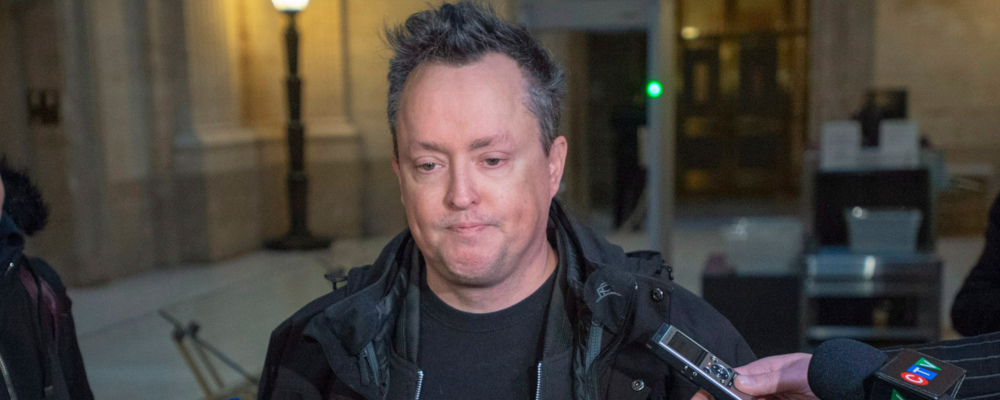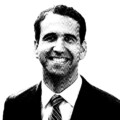In October, the Supreme Court released a landmark ruling on the collision of fundamental rights—arguably the most delicate issue in the life of a liberal democracy.
In Ward v. Quebec, the Court held that the ridicule of a young disabled person named Jérémy Gabriel by comedian Mike Ward neither amounted to discrimination under Quebec’s human rights code nor exceeded the bounds of tolerable speech. Between the right to safeguard dignity and the right to free expression, the Court sided with the latter in this case. Five judges ruled for Ward, and four ruled against.
I agree with most legal scholars, political theorists, and citizens: the law should be highly reluctant to sanction offensive and even viciously repugnant expression. But while I agree with the outcome in Ward, there is something deeply unsatisfying about the judicial handling of this case.
The Court, in my view, neglected to remind us of a principle that sits at the bedrock of our society. While the law plays a key role in moral formation, it cannot and should not be the lead vehicle for pursuing this goal. Civil society—the myriad non-state actors and entities that surround us, starting with the family—plays the primary role in shaping upright citizens.
This principle, it seems, has faded out of view. The exponential growth of the administrative state after World War II and the comfort that has developed around the idea that “government knows best” have put too many cooks in the kitchen for cultivating the character of individuals and the societies they form. As this kitchen has become crowded, there seems to have been a change of who wears the chef’s hat.
This change infuses the minority opinion in Ward. The minority channels the notion that the state can and should sanction much of the conduct that it deems immoral at any given point in time. It does not take much reflection to understand why this notion, if accepted, could lead to undue state interference with the workings of civil society. Granting the state this sort of power, even if doing so is well-intentioned, inevitably invites a normative totalitarianism that is antithetical to the free, democratic, and plural society that Canada aspires to be.
The hard truth embedded in the case of Mike Ward and Jérémy Gabriel is that the law is generally not well-suited to remedy harm inflicted by offensive speech. Apart from concerns about whether the law can be sufficiently tailored to handle the nuances of each individual case, there are complicated challenges in drawing lines between permitted and prohibited speech. It is also legitimate to worry about laws that punish offensiveness with fines or imprisonment being abused for political, selfish, and even malicious purposes.
There is something unsatisfying about the judicial handling of this case.
For better or for worse, and I would say on balance for better, robust freedom of expression enjoys a hallowed place in the tenets of liberal democracy. It must be jealously guarded and only exceptionally curtailed. The Court’s decision in Ward should have been unanimous.
But saying that the law should not intervene in cases such as Ward should not stop us from saying loudly and clearly that Mr. Ward’s treatment of Mr. Gabriel is unbecoming of what we expect from a citizen of a society that cherishes dignity and inclusion. The unpleasant taste that the outcome in Ward leaves in the mouths of many should inspire us to rediscover the position and role of civil society—families, charities, associations, and many other groups and organizations—in shaping citizens who strive to be decent human beings. Ward invites us to reflect on our efforts to cultivate virtue within ourselves and persons close to us. The law simply cannot be the medicine to remedy every social ill. The human connection, often in the form of small gestures, is usually far superior in this regard.
Some might disagree and argue that the minority judges in Ward should have won the day. I believe this result, had it come to pass, would not only have opened the door to a radically different kind of society, as well as a dramatic expansion of state power. It would have also represented a surrender to the state in matters that are more properly the jurisdiction of civil society. Truth be told, it would have been a conquest with the courts and human rights tribunals leading the charge.
In a sense, I agree that the minority’s opinion in Ward should have prevailed. But that victory should have been secured by Mr. Ward himself, long before the law or courts got involved. It is hard to imagine how our society would be any worse off had Mr. Ward passed over Mr. Gabriel as a subject for ridicule (and for monetary gain). We should call a spade a spade: our society is far less than what we wish it to be when behaviour like this occurs. Mr. Ward should have made a different choice.
Mr. Ward won in court, and as a matter of law rightly so. But he must also deal with the court of public opinion, composed of people he hopes will be in his next audience. It seems, for an overwhelming majority of these judges, this case is no laughing matter.
Recommended for You

Adam Zivo: No Dr. Bonnie Henry, drug prohibition is not ‘white supremacy’

DeepDive: Two-parent families: why they’re so important—and why there’s cause for concern in Canada

Patrick Luciani: Does liberalism make us better people?

Alicia Planincic: Want to regain support for immigration? Prioritize economic immigrants once again










